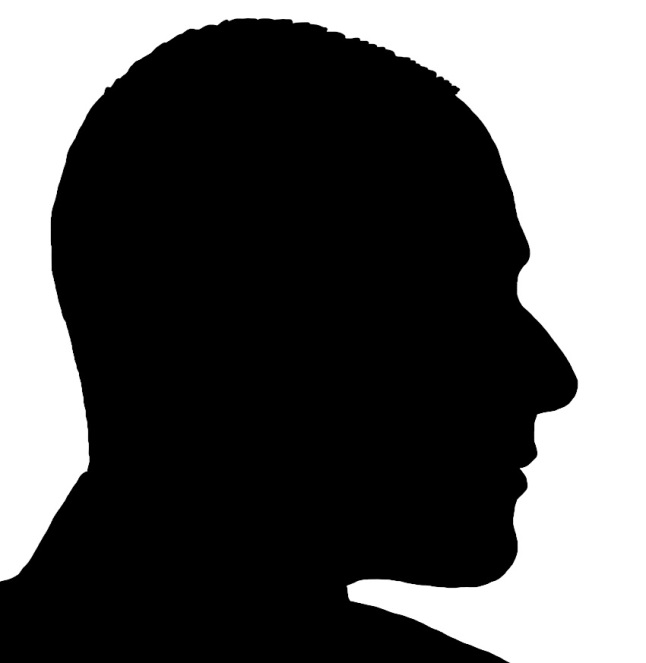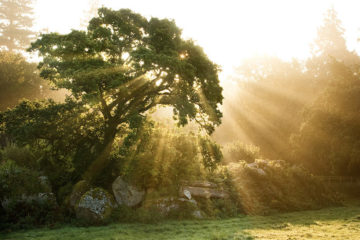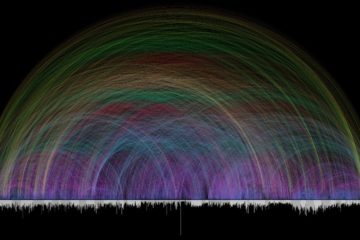Profiled

Black people in America deal with more negative racial profiling than any other group of people.
[It is the third week of July 2020. At the beginning of the month I started writing about race and current events (see “Black Power & Little Micah” and “Measuring The Problem”) with the goal of encouraging thought and out-of-the-echo-chambers conversation. I won’t get everything right or say everything right, but I hope at the end, we all will have a better perspective of what is both true and good. Our society depends on people who disagree being able to discuss ideas and perspectives with humility, respect, and a desire for the truth. This is my small contribution to a better future through conversation.]
Last week in “Measuring The Problem” I focused specifically on the fear that many black people are living with, the fear of being murdered by racist police. I hope it helped some people live a little easier, I hope you learned something or that I at least made you think, do research, or ask more questions. And while that is a major concern in America, it isn’t the only concern regarding race and justice.
Earlier this week a friend of mine sent me a gut-punch of a story about a black medical resident living in New York being profiled and harassed by the police because they were, “looking for suspects in gang-related shootings in the area.” You can read the whole thing HERE.
It was a gut-punch to read, because I’ve been there many times.
Before coming to Atlanta, my wife and I lived in a poor white and Hispanic neighborhood. It was where we started learning to do community ministry from people who became some of our life heroes. There was so much abuse, dysfunction, rape, and meth in that neighborhood that mangled people’s lives, but God was also at work there doing some beautiful rescuing.
At some point police started paying more attention to our neighborhood and that became an ongoing scary thing in my life. I started getting pulled over by the police on a regular basis, but especially if I was driving home at night. Sometimes the cops were professional, sometimes they were aggressive, accusing, and frightening. It got to where if I was driving home at night, I would just assume I was going to get pulled over. Before I left wherever I was, I would turn on my lights and walk around my car to make sure they were all on so no one could say I had a light out. In my neighborhood I made sure I drove exactly the speed limit. At every stop sign I took a long, deliberate stop so no one watching from the dark could say I rolled a stop sign. A lot of times it didn’t matter. I would get pulled over anyway. And I was scared.
Over time I developed this routine when the blue lights came on. Immediately slow down. Caution lights on. Pull over to a safe place. Dome light on so they can easily see everything inside. Car off. Keys on Dash. Window down. Driver’s license and insurance on the dash so I don’t have to reach anywhere to get it. Hands gripping the steering wheel or held out the window, palms up, easy to see. No one taught me this. Fear taught me.
One night I got pulled over by a seemingly more seasoned cop that handled everything in a professional way. I was still scared and angry. I asked him, “Why do you guys keep pulling me over? You said my tag light is out and I know it’s not out. It’s the same story every time and I checked it before I left. It’s not out. Why are you doing this?”
The officer looked stunned for a minute. Then he said they were trying to catch some meth dealers in the neighborhood and I fit the description – young white male driving a cheap car. So that was it. I looked like the criminals in the area, the ones that were specifically targeting their meth sales towards the kids I was trying to help. I told the cop, “Well, I’m not them. I live here with my wife and have a regular job. If you want to know who the meth dealers are, you could have just asked.” As I told him where the meth dealers lived and who they were, he looked surprised. He told me to have a good night and walked off into the blue-lit dark.
Sometimes things were better after that. Sometimes my attitude about getting harassed was better because I knew they were trying to catch the guys that our community really needed to be stopped. I wanted them to succeed. Some days I said to myself, “I get it, people think in patterns and the pattern the cops are used to seeing around here is Young+White+Male=Bad Guy/Threat/Suspicious. I’ll just act different than their expectations and hope they are successful.”
But my attitude wasn’t always better. It stinks to be profiled and pre-judged. It’s wrong – and unconstitutional. It’s scary to have armed people in authority acting aggressively and accusingly towards you because they think you’re someone you’re not. I wish they had cameras back then the way they do now or I knew about them or I could have afforded them. Not only was it frightening at times, it also made me mad to be associated with the people that represented everything I was living against. Those other young white males were predators and this young white male was trying to be a part of healing what they were destroying. It was maddening that some of the consequences of their bad actions were blowing back on me – and other innocent people – just because I looked like them.
So when I read that Washington Post story about the black medical resident profiled for looking like a gang member, I felt it, because I KNOW.
But here is the thing. One day, I moved away from that neighborhood; that place where to cops “young-white-male-in-cheap-car” was often synonymous with “criminal” or “suspicious.” The day I moved to a different area is the day that all stopped in my life.
That solution isn’t always so easy for young black men.
In 2017, Harvard professor Roland Fryer Jr, published a study called, “An Empirical Analysis or Racial Differences in Police Use of Force.” He summarizes his findings in saying:
On non-lethal uses of force, blacks and Hispanics are more than fifty percent more likely to experience some form of force in interactions with police. Adding controls that account for important context and civilian behavior reduces, but cannot fully explain, these disparities. On the most extreme use of force –officer-involved shootings – we find no racial differences in either the raw data or when contextual factors are taken into account.
What this means in whole numbers, is that controlled for all factors, if there were an equal number of white people and black people in America, for every TWO white people who are cuffed, shoved, pushed to the ground, or had a weapon pointed at them by the police, the same thing would happen to THREE black people. Dr. Fryer could find no other explanatory factors for the difference of treatment beyond race. In short, while there may not be a racial bias in police shootings, there is a racial difference in how people of different races are treated by the police.
The clear explanation for the difference is prejudice – pre-judging or profiling based on race. It means that my experience of being profiled for “looking like a criminal” as a young white man is unusual in the larger American context, which is what made my simple solution of moving so effective.
But what do you do if you are black and want to live in a world where you are seen by the police and members of your community as the unique individual and child of God that you are? The solutions are more complex and come with fewer guarantees.
I mentioned last week that there is a difference in behavior between racial groups when it comes to violent crimes. This is evident whether you look at data from the CDC, the FBI, or City Police Data or academic papers. The tragically disproportionate amount of violent crimes both committed and suffered by black Americans isn’t seriously debated, but the causes of those racial disparities certainly are.
It may seem insensitive to bring this up, but it is both on point, and it is insensitive to pretend it isn’t a real concern when black Americans consistently report that violent crime is a very high concern for them. Young black men are roughly 4% of the population and consistently commit nearly 50% of the annual murders – and these deaths are overwhelmingly other young black men. Death by homicide is the number one or two cause of death in every age category for black males all the way from one years old to thirty-four. I don’t think you can care about black people and black communities without accepting the reality of the role violence plays in their families and communities, grieving it, and searching for solutions.
With the significant racial disparity in violent crime rates, where do you go and how do you live as a young black man in America where you won’t be profiled, pre-judged, and treated poorly for “looking like a criminal?”
I think people who don’t know would be surprised how much thought and intentionality many black people put into answering this question. For some people it determines where they live and where they go. For some people they try to distinguish themselves by driving a nice car, always dressing well, and conducting themselves differently. There are a hundred subtle ways people try to say to the world, “See me! See me differently! I’m not that!”
But it doesn’t always work. It didn’t always worked for Harvard graduate Barack Obama and it hasn’t always worked for millionaire movie-star Will Smith.
A black friend of mine has two teenage boys and he tells them, “Don’t dress like a thug and people won’t treat you like a thug.” It is important, helpful advice, but it doesn’t always work. It isn’t enough.
It isn’t enough for the potentially profiled and pre-judged to shout “See me!” in every way they can. We, the people, need new eyes. We need to learn to see every human being the way that God does, as a unique child of God, a precious unique gift that will never be repeated, someone who was put on this earth to reflect the image and nature of God in a way only they can. We need to learn to see each person as a unique individual that the creator of all things – the one who taught the stars to shine and the quarks to dance – knows and loves, and suffered and bled for so that they would know what a son or daughter of God they truly are.
That is how I want to be profiled and pre-judged and how I hope one day all people will be.
It is natural for our human brains to profile and to look for patterns and categories. As any parent could tell you, it is also natural for us to do all sorts of unpleasant and destructive things – but we learn.
We can learn. And God can give us new eyes.
You may also be interested in:


